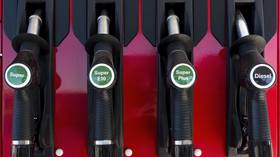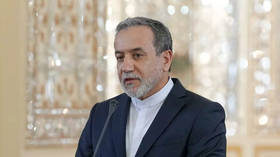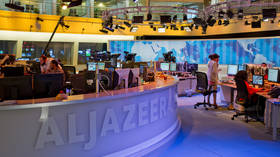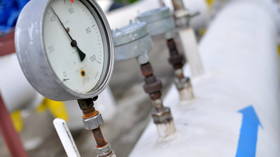Rising petrol prices spur fuel tourism across Europe

Soaring fuel prices at home are driving some Europeans to neighboring countries to fill up their cars this autumn. Despite the cost of the trip, an increasing number of Germans are crossing the border in pursuit of cheaper gas.
The price of gasoline in Germany has hit nearly €2 ($2.30) per liter, meaning filling up currently costs around €20 ($23.20) more than in neighboring Poland, Austria, or the Czech Republic.
“Driving across the border just to refuel is particularly worthwhile if the price differences are high and the distances are very short,” Jürgen Albrecht, fuel expert at the General German Automobile Club said.
However, as price sensitivity increases and the forecast continues to look bleak, more and more Germans are prepared to make longer journeys too.
Also on rt.com German diesel prices climb to all-time high amid European energy crunch“Everyone is worried about prices. I’ve heard they could triple next year,” a driver told RT.
“Prices are going up everywhere. I’m worried that filling up the tank will become too expensive, as I depend on my car. If you live far from public transport, what are you supposed to do?” another car owner said.
Global prices for natural gas, coal, oil, and electricity are currently unusually high due to the surging global energy demand as countries begin to open up their economies after Covid-related lockdowns. Added to that, investments in the energy sector have been limited, due to the pandemic, while natural-gas storage levels in Europe are lower than usual.
Also on rt.com European gas prices to increase further in event of harsh weather, Wintershall CEO saysHowever, these factors are expected to make themselves felt not only in Germany, but across Europe. According to ZTG, the country’s gas station trade association, fuel prices are surging faster and the spikes are sharper primarily due to taxes and duties.
The subject is expected to become one of the most important issues in the ongoing talks aimed at forming the next German government coalition, which will shape the nation’s energy policy for the years to come.
While the main line of argument is focused on green energy, some suggest that tax cuts, especially when it comes to fuel, are the only way to resolve the energy crisis, which has since impacted the food-supply sector.
For more stories on economy & finance visit RT's business section














